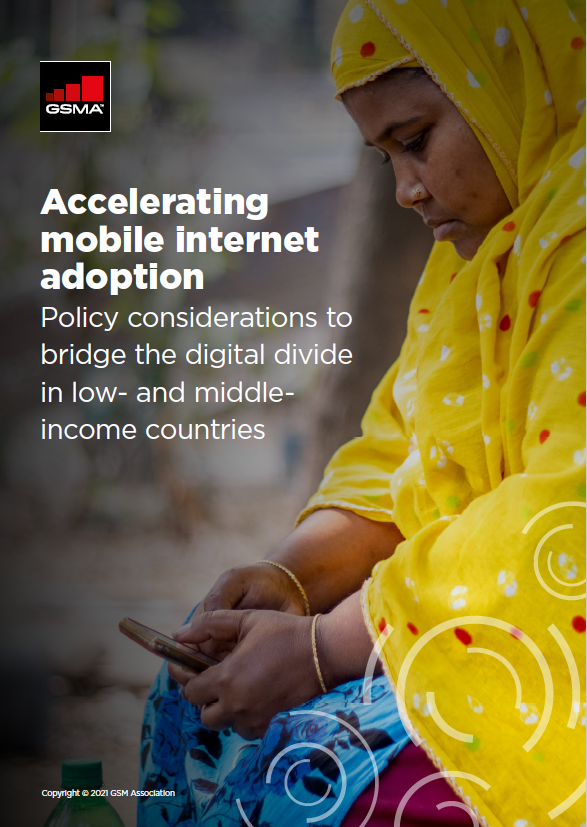This report responds to the need to accelerate mobile internet adoption and use, which is the biggest challenge in bridging the digital divide. The report sets out a wide range of policy considerations and proposes a comprehensive framework for action to help tackle the five main barriers to mobile internet adoption in low- and middle-income countries.
Worldwide, 4 billion people do not yet use mobile internet, despite 3.4 billion of them (or 85 per cent) already being covered by a mobile broadband network. People who remain excluded are disproportionately poorer, rural, female and persons with disabilities. This shows that infrastructure policies alone will be insufficient to achieve inclusive digital growth. This report therefore covers the following policy areas:
- Improving affordability of internet-enabled handsets and data services
- Increasing awareness and understanding of mobile internet and its benefits, and developing digital skills strategies that help people meet their life goals and needs
- Supporting the expansion of local digital ecosystems with relevant content and services
- Addressing safety and security concerns
- Expanding access to networks and enablers (e.g. electricity, training and sales facilities, formal IDs) while improving the usability of handsets, content and services
The report also proposes a comprehensive framework for action. This framework stressing the need for evidence-based policies that are adapted to local contexts, developed in close collaboration with a broad set of stakeholders and regularly evaluated to guide further action to bridge the digital divide.


